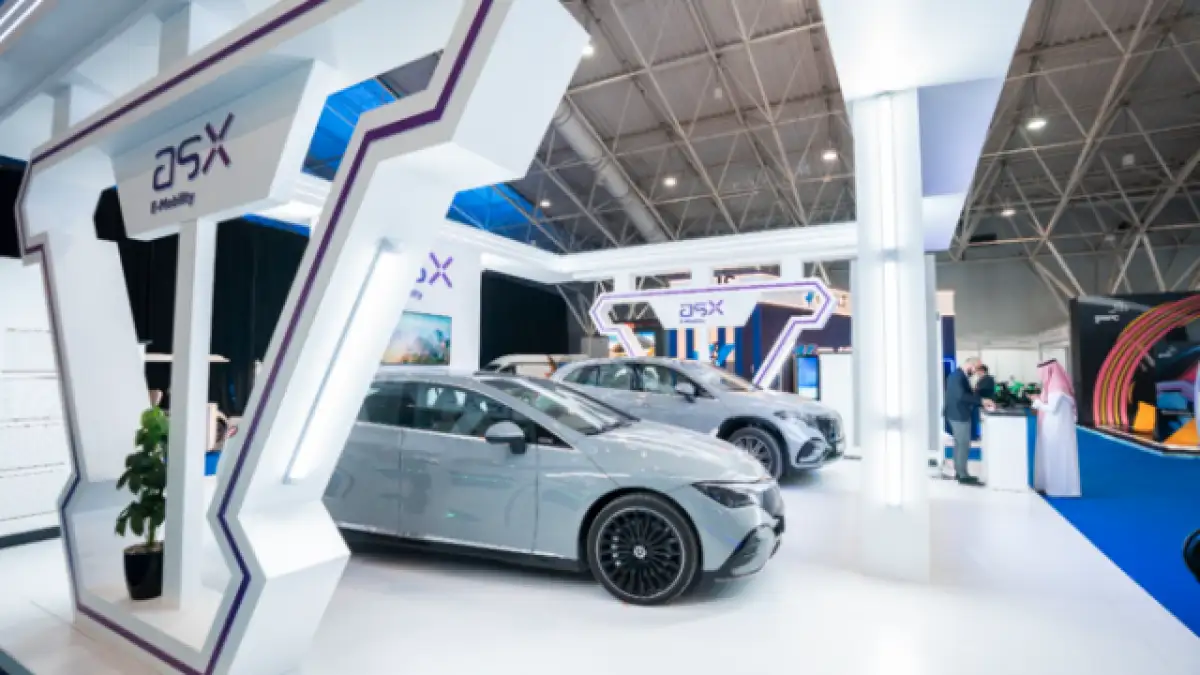
At the Electric Vehicles Exhibition in Riyadh, Heiko Seitz, PwC's global leader in electric mobility, spoke about the current state of electric mobility in Saudi Arabia. He noted that the Public Investment Fund is significantly facilitating funding flows to establish a suitable value chain for eco-friendly vehicles. Additionally, he highlighted that challenges in the electric mobility sector in the Kingdom include the availability of new vehicles and a lack of charging infrastructure.
He stated, "Between now and 2030, the Public Investment Fund will invest about $39 billion in establishing a completely new industry. We expect half of the capital to go towards creating an ecosystem for electric vehicle manufacturing, a quarter to battery and supply chain manufacturing, and the remaining quarter to parts and chips, etc."
He added, "We see a national effort to build an industry from scratch. It's amazing and interesting to see how a country can partner with globally leading companies in such a short time and bring the best of the world to the Kingdom, thus starting its success journey from scratch."
He also mentioned that about 30% of all cars currently for sale in Europe are battery electric vehicles. However, in the Middle East, this figure is only about 7%, indicating that there are many vehicle models that could be sold here but have not yet been. He noted that this limits the customer's choices. He added that issues surrounding charging infrastructure will soon be resolved, as companies including Electric Vehicle Infrastructure Co., also known as EVIQ, are ramping up charging stations in the Kingdom.
In May, electric vehicle manufacturer Lucid signed a memorandum of understanding with EVIQ, supported by the Public Investment Fund, to facilitate the activation of high-speed public charging infrastructure in Saudi Arabia. Seitz commented, "We see a lot of announcements from major companies like EVIQ that have begun building the ecosystem, and I am very optimistic that we will have a very bright future for electric mobility in the region."
He also highlighted that the costs of electric vehicles are decreasing globally and are slowly becoming as affordable as internal combustion engine vehicles. He said, "In Saudi Arabia, we see that operating an electric vehicle as a commercial fleet operator is almost as cost-effective as driving a combustion-engine vehicle. However, for the traditional customer buying a car, it is still a bit more expensive because fleet customers always get better discounts."
He added that the prices of electric vehicles in Saudi Arabia will decrease further with the entry of new car brands into the Kingdom.
Seitz stated, "What we see now is that as the number of car brands coming to the Kingdom to compete increases, there will be a price war, just as we saw this war in Europe." He added, "I am very confident that over the coming years, and perhaps even in the coming months, prices will drop significantly, just as we saw in Europe, where they have already dropped by 15%."
Citing a recent survey conducted by PwC, he said that 40% of Saudi residents are interested in purchasing an electric vehicle in the next three to four years. He remarked, "With more models entering the market and the presence of Lucid, Seer, and other local Saudi brands bringing electric vehicles to the market, I see nothing that should prevent the customer from fully transitioning to electric mobility."

Yasir Al-Mansouri have more than 10 years of experience in the automotive journalism world. He is an expert of automotive news articles, features, and reviews on cars, from the latest models to industry trends. He've built strong relationships with car manufacturers and industry experts. Connect with Yasir Al-Mansouri on LinkedIn to stay updated on all things automotive and join our exciting journey in exploring the world of automobiles.













